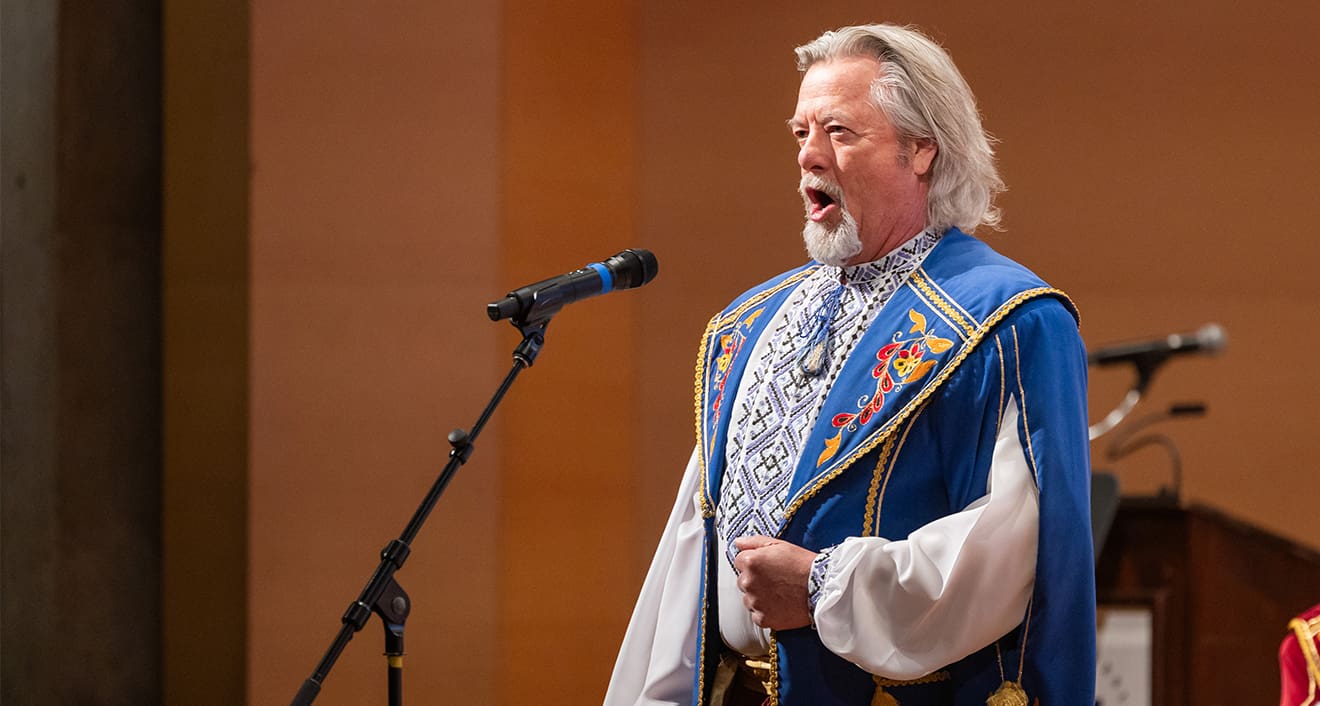Katja Kolcio, chair and associate professor of dance, once imagined a career in international relations. But when her research on Ukraine was discouraged by former colleagues, she turned to the arts—where she could speak freely.
“Art is a way to assert existence and vitality,” Kolcio said. “History books can be rewritten to erase a culture, but art resists erasure—it insists on presence. You cannot deny a dance, a song, or a musical instrument.” Kolcio, whose family includes generations of political and performance artists, has long used choreography to weave traditional Ukrainian art forms with contemporary movement. Soon after joining Wesleyan’s faculty in 2000, she began incorporating the bandura—a 60-stringed folk instrument often called Ukraine’s national instrument—into her work.






